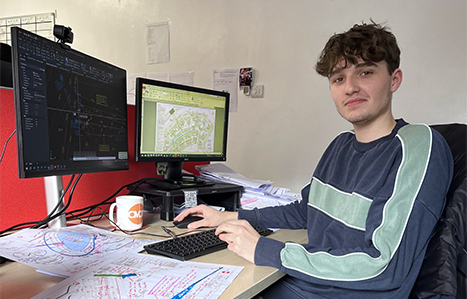Exeter College: A Learning Journey
It is now one year since Exeter College started their Sustainability Journey in earnest, when they asked the EAUC to conduct a Sustainability Audit. Whilst lots of good things were already happening, they were unstructured, and often unseen. Since then, the Exeter College has made impressive headway, with focus through the now well-established Sustainability Group; and an understanding of what all areas of the College – and wider community – can do, particularly together.
The College were always keen that the Sustainability Group would include College partners as well as staff and students, and this approach is certainly proving advantageous and one they would recommend to others. The Hair and Beauty department are presently working with Exeter City Council (both represented on the Sustainability Group) to see how viable it is to recycle foil from treatments. This relationship has facilitated trials to determine what items can be recycled and under what conditions. The learning from this will be valuable initially throughout Exeter City as the Council will have a better understanding of additional waste that can be recycled; and offer learning further afield as the results of the study are shared.
Steve Strang, Ambassador for Sustainability, and Head of Estates, has a steady plan for leading the sustainability progress. Working as part of the day-to-day focus in Estates, good central practice is already underway. The next step is greater engagement within the wider community. As Steve and his team already visit each department within their Estates role, adding Sustainability to this is straightforward to implement, and firmly on the action plan. Combining the sustainability role into a role that already works across the organisation is certainly working for Exeter College.
The learning from the Urban Garden project continues. Steve reflects that it was “great to get students involved in a one-off project, but the greater learning experience will come when it’s part of the long-term curriculum”. The grant suited the purpose of getting the Garden started. The curriculum leaders are now planning how the garden can be used as part of courses, including foundation studies; maths and science; and adult and evening courses.



